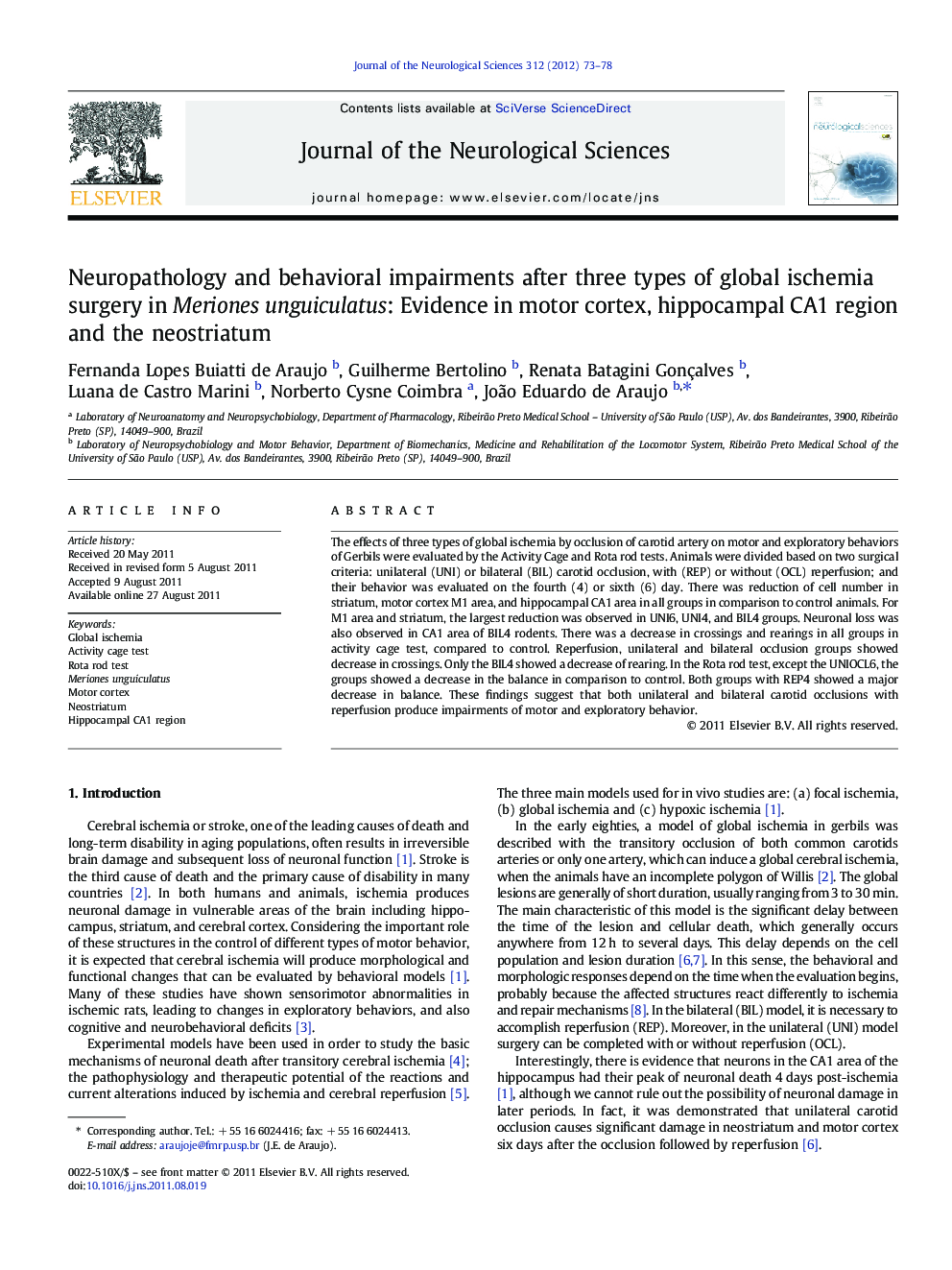| Article ID | Journal | Published Year | Pages | File Type |
|---|---|---|---|---|
| 1914047 | Journal of the Neurological Sciences | 2012 | 6 Pages |
Abstract
The effects of three types of global ischemia by occlusion of carotid artery on motor and exploratory behaviors of Gerbils were evaluated by the Activity Cage and Rota rod tests. Animals were divided based on two surgical criteria: unilateral (UNI) or bilateral (BIL) carotid occlusion, with (REP) or without (OCL) reperfusion; and their behavior was evaluated on the fourth (4) or sixth (6) day. There was reduction of cell number in striatum, motor cortex M1 area, and hippocampal CA1 area in all groups in comparison to control animals. For M1 area and striatum, the largest reduction was observed in UNI6, UNI4, and BIL4 groups. Neuronal loss was also observed in CA1 area of BIL4 rodents. There was a decrease in crossings and rearings in all groups in activity cage test, compared to control. Reperfusion, unilateral and bilateral occlusion groups showed decrease in crossings. Only the BIL4 showed a decrease of rearing. In the Rota rod test, except the UNIOCL6, the groups showed a decrease in the balance in comparison to control. Both groups with REP4 showed a major decrease in balance. These findings suggest that both unilateral and bilateral carotid occlusions with reperfusion produce impairments of motor and exploratory behavior.
Related Topics
Life Sciences
Biochemistry, Genetics and Molecular Biology
Ageing
Authors
Fernanda Lopes Buiatti de Araujo, Guilherme Bertolino, Renata Batagini Gonçalves, Luana de Castro Marini, Norberto Cysne Coimbra, João Eduardo de Araujo,
